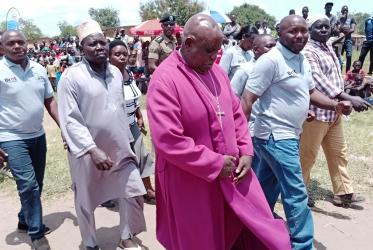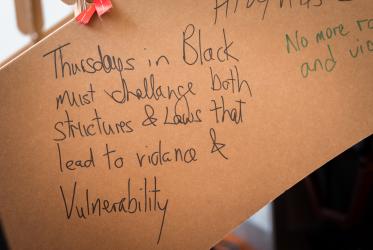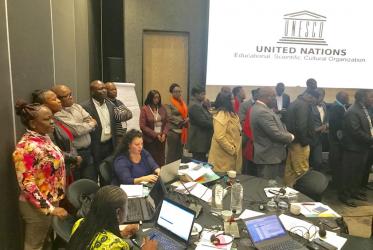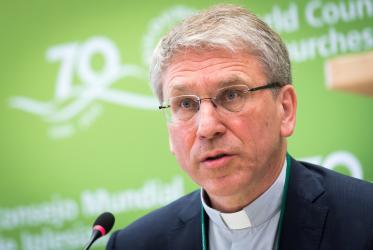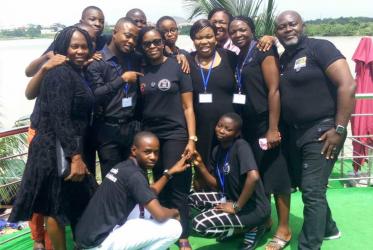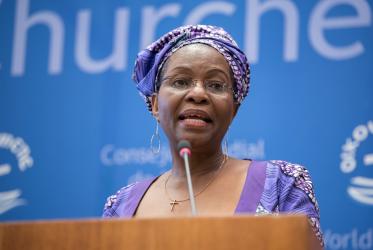Displaying 21 - 40 of 84
16 December 2019
Youth leaders: “We will stop at nothing” to end HIV and violence
17 October 2019
Religious leaders from South Sudan cherish those who host refugees
23 September 2019
When you strike the women, you strike a rock
18 September 2019
Knowledge of gender roles deepens in Togo
03 June 2019
Faith and HIV treatment go hand in hand
06 March 2019
WCC hones training on attitudes toward HIV treatment
06 December 2018
Paving the way for ecumenical studies, learning English in Bossey
24 September 2018
Doing his best without being the best
07 September 2018
Tveit in DRC: “Making peace is holy work”
19 August 2018
Congolese churches respond to Ebola outbreak
01 June 2018
WCC “Pilgrim Team” to visit South Sudan
30 April 2018
An advocate for family values, called by God
26 March 2018

